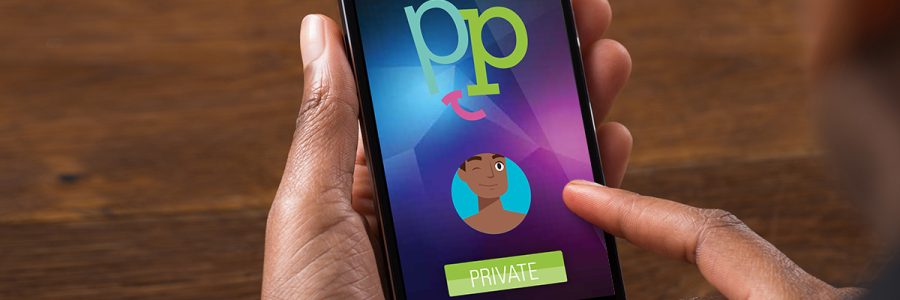New Positive Peers app bridges the gap between in-person and online HIV resources
April 4, 2020
What began as an HIV support group evolved into a private Facebook group and has now taken its most recent form as an app that includes success stories, medication reminders and more to help users find their place in the HIV community.
The app is called Positive Peers, and for those with HIV, it acts as a support group in your pocket. Users can register on the Positive Peers website by providing information such as their medical records and documentation with their name and date of birth. This policy was set so the app can act as a private community for those who have tested positive for HIV.
The Positive Peers app was born out of an HIV support group led by Jennifer McMillen Smith, a social work specialist at MetroHealth, a Cleveland non-profit public health care system. The support group was to meet every week, but members could not always attend, which sometimes led to forgotten medication and a loss of emotional support.
“We want to get these people, get them in care and retain them in care. But how do we retain them in care? We retain them in care by providing social support,” said Mary Step, a Kent State assistant professor and evaluator for the Positive Peers Project.
The group then created a private Facebook chat through Blue Star Design, LLC, so members did not have to communicate face-to-face. They eventually came up with the idea of an app, and with a grant from the Health Resources and Services Administration, evolved into the version now available for Android OS and iOS.
“This is designed by people with HIV for people with HIV,” Step said. “All of the imagery, the language that is used, it comes from them.”
Blue Star has experience with designwork in the medical field, but the Positive Peers Project inspired employees to think about design in a new way, said Blue Star CEO and Chief Creative Officer Julia Briggs.
“With just [the website] format alone, they were actually able to save lives, and that was kind of a really interesting thought, that design and technology can really help,” Briggs said.
The app is targeted toward young people of color and gay men, with transgender people also being a large subpopulation of that group that often resorts to sex work and risky sex. Step emphasized educating young adults about HIV; otherwise they might fall out of care and begin practicing unsafe sex.
“When you’re young, you have a lot of sex … it might be protected [and] it might be unprotected,” Step said. “I think everybody knows the rules, but not everybody plays by the rules.”
Community and education are the main focuses of the Positive Peers app, and all information is presented in a “cheeky, sex-positive way,” McMillen Smith said.
“People can have sex without spreading the disease, and I’m amazed at so many people that don’t know that,” Briggs said. “Having the opportunity to educate anyone on it has felt so good and powerful.”
Based out of Cleveland, Positive Peers’ goal is to have its name known across the country and hopefully the world, Step said. With presences on Instagram, Facebook and Twitter, the creators of the app have been working to make the app known among those who could use its services the most.
“In Cleveland, we’re real urban and we have all kinds of access to public transportation and all these great health institutions,” McMillen Smith said. “But I imagine someone living in the middle of the desert in Arizona or in between two mountains in Virginia where maybe they really can’t get to where they can talk face-to-face with another person with HIV, and how cool would it be if they could just tap into the app and find other people they can talk to.”
During a summer in college, McMillen Smith volunteered at the Malachi House of Hope, a home for people who are terminally ill. She met a man who had been rejected by his peers due to his AIDS-related illness.
“He and I really got to know each other, and we used to paint together on the porch with the art therapist,” she said. “There were people who were afraid of him and were afraid to sit with him, and it never occurred to me to be fearful of him because I knew enough about [the disease]. I decided to become a social worker that summer.”
It is important that those on the app are able to talk with people who have firsthand experience with the disease, McMillen Smith said. She has worked with HIV patients for 22 years.
“I know just about everything there is to know, and if I don’t, then I know where to find the answer, but I’m not an expert personally of what it’s like to live with it because I don’t have it,” she said. “I’m never going to have that level of personal knowledge that our users have, so they really are uniquely qualified to help each other.”
Holly Liptak is a crisis, recovery, hunger and help reporter. Contact her at [email protected].












